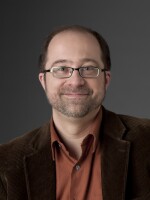At a recent health care town hall meeting, a woman saw my microphone and said, "I suppose all we'll see in the news tomorrow is the shouting."
Well, yes, I suppose you will. In politics, the corollary to "If it bleeds, it leads" is something along the lines of, "If it yells, it sells."
And yes, ma'am, the yelling was what brought me to southwestern Washington. I was doing a story about how Rep. Brian Baird tried unsuccessfully to avoid holding angry town hall meetings.
But I also take her point. There's more to these town halls than you'll get from the YouTube moments.
Take Baird's town hall at the Clark County Amphitheater on Aug 18. Mixed in with the angry outbursts and certain paranoid delusions (AmeriCorps is arming to take over the country?), there was a substantial debate.
Honest questions by constituents who are legitimately spooked by a doorstop of a bill that promises to rewire a huge section of our economy. And the audience got some meaty answers from a member of Congress who used to work in health care and who clearly does know what he's talking about. Baird is also trying mightily to convey some of the complexity of the issue — while acknowledging his own doubts.
If you listen to the raw tape of the meeting, you get a fuller understanding of what's behind the anger on display in those YouTube clips.
Death Panels
As everyone knows by now, the House bill includes a provision to reimburse Medicare doctors for end-of-life counseling — that is, getting the patient's wishes on the record. One of the first questions of the night is from a man who worries that the bill is a "death sentence" for his grandmother.
This may seem risible, but this issue touches a raw nerve. Many elderly patients still don't have living wills, which often forces families to make the terrible decision of when to pull the plug. Many doctors and nurses will tell you that they're the ones who often end up making that call, quietly and unofficially. But when Medicare is paying the bill — even if it's just for counseling — painful end-of-life decisions are forced into the glare of regulations and law. Some people are fundamentally creeped out by any proximity between government regulations and end-of-life decisions. (In the town hall audio, jump to 0:15:15)
Polarized Politics
Half an hour into the meeting, the politics of the "public option" — a government-run health plan — is reduced to opposing crowd reactions. Damned if you do, damned if you don't. You can hear the frustration in Baird's voice, faced with a district this polarized. Here in the Vancouver area, things are pretty conservative. But the passions are just as strong on the northern end of his district, home of the state capital, civil servants and unions.
So Baird focuses on tactics: He talks about the political realities on Capitol Hill, the vote count, and seems to hint that one way out of this dilemma is to take a more piecemeal approach to the health care overhaul. (Jump to 0:30:28)
The Future Of Private Insurance
A fellow named Ray wants to know if people are going to be forced into government-run health insurance. Defenders of President Obama's plans say this fear is groundless, because the legislation would set up the government insurance as just one option in the marketplace. But it's not that simple. The law may allow people to buy private insurance, but what options would private insurance companies offer once there's a cheaper government version to compete with? They might very well pull back and limit themselves to the employment health insurance market. (Jump to 1:10:00)
Government Innovation An Oxymoron?
Baird is challenged to list something the government runs well ("besides the military.") He comes up with a couple of noncontroversial examples (yeah, United States Geological Survey!) Then he offers, "Our health care research leads the world!" for which he is jeered.
"For now it does!" says Ray. This is a common fear on the right, that government involvement in health care will stifle innovation. But what Baird meant — and Ray seems to be missing — is the fact that the government already funds much of this country's most cutting-edge medical research, through the National Institutes of Health. (Jump to 1:12:25)
Government Intrusion
Baird works hard to keep a conciliatory tone during this meeting, but he almost loses his cool when answering a question about legislation that would offer parents information on "early childhood development."
As the crowd boos, Baird says — almost despairingly — that this is nothing more sinister than tips on potty-training. "Are we opposed to informing people?" The answer from his constituent is telling: "We're having a very difficult time struggling with what the potential is down the road." (Jump to 1:16:01)
Reinventing The Wheel
A man comes to the mic to point out that the HIPAA law of 1996 already seeks to prohibit discrimination for pre-existing conditions, and is supposed to make it easier for people to take their insurance with them. Why not go back and tweak the existing law? Why come up with a whole new 1,100-page bill? Baird calls this a "legitimate point." (Jump to 1:20:00)
So yes, there was shouting. And at least a dash of nuttiness (the bit about the impending coup by AmeriCorps goons, by the way, can be found at 1:37:00). Watching the crowd from the back, I saw a lot of people sitting bolt upright out of sheer anger and frustration. But this was a real political conversation, typically American in its tone and substance. And if you want to get a handle on the political moment in this country, you need to listen to the whole thing.
Listen to the whole meeting, and apologies for the minor gaps due to recording glitches.
Copyright 2022 NPR. To see more, visit https://www.npr.org. 9(MDAzMjM2NDYzMDEyMzc1Njk5NjAxNzY3OQ001))







